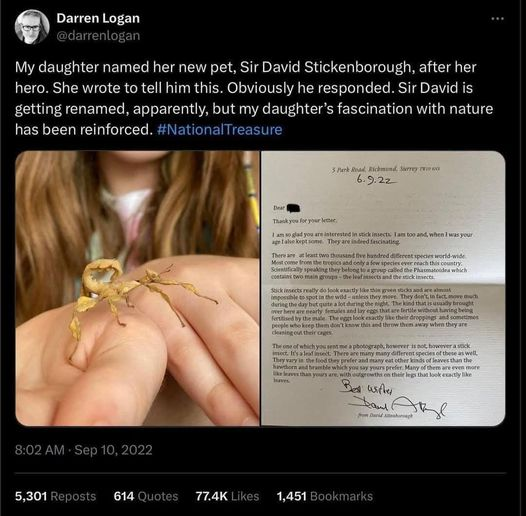this post was submitted on 29 Nov 2024
362 points (95.5% liked)
Science Memes
11440 readers
1697 users here now
Welcome to c/science_memes @ Mander.xyz!
A place for majestic STEMLORD peacocking, as well as memes about the realities of working in a lab.

Rules
- Don't throw mud. Behave like an intellectual and remember the human.
- Keep it rooted (on topic).
- No spam.
- Infographics welcome, get schooled.
This is a science community. We use the Dawkins definition of meme.
Research Committee
Other Mander Communities
Science and Research
Biology and Life Sciences
- !abiogenesis@mander.xyz
- !animal-behavior@mander.xyz
- !anthropology@mander.xyz
- !arachnology@mander.xyz
- !balconygardening@slrpnk.net
- !biodiversity@mander.xyz
- !biology@mander.xyz
- !biophysics@mander.xyz
- !botany@mander.xyz
- !ecology@mander.xyz
- !entomology@mander.xyz
- !fermentation@mander.xyz
- !herpetology@mander.xyz
- !houseplants@mander.xyz
- !medicine@mander.xyz
- !microscopy@mander.xyz
- !mycology@mander.xyz
- !nudibranchs@mander.xyz
- !nutrition@mander.xyz
- !palaeoecology@mander.xyz
- !palaeontology@mander.xyz
- !photosynthesis@mander.xyz
- !plantid@mander.xyz
- !plants@mander.xyz
- !reptiles and amphibians@mander.xyz
Physical Sciences
- !astronomy@mander.xyz
- !chemistry@mander.xyz
- !earthscience@mander.xyz
- !geography@mander.xyz
- !geospatial@mander.xyz
- !nuclear@mander.xyz
- !physics@mander.xyz
- !quantum-computing@mander.xyz
- !spectroscopy@mander.xyz
Humanities and Social Sciences
Practical and Applied Sciences
- !exercise-and sports-science@mander.xyz
- !gardening@mander.xyz
- !self sufficiency@mander.xyz
- !soilscience@slrpnk.net
- !terrariums@mander.xyz
- !timelapse@mander.xyz
Memes
Miscellaneous
founded 2 years ago
MODERATORS
you are viewing a single comment's thread
view the rest of the comments
view the rest of the comments

I think we're just supposed to infer something generally heartwarming and nod vaguely and approvingly.
I read the letter by squinting , totally worth the read and the post
I copied it via Google Lens and pasted into a file to read.
YMMV.
DearThank you for you
I am so glat you are interested in stick insects Tattoo and when I was your age talve kept son. They are indred fascinating
There are at least two thousand five hundred different species world-wide Most come from the tropics and only a love spectes ever reach this coustry. Sowstifically speaking they belong to groep called the Pharmaton which coesaink bei enguthe left and the stick insects
Suck insects exally do Soksactly like this gyvonvo impossible to spot to the wars they move. They don't, in fact, dering the day but quite a lot during the night. The kind that is usually brought er here are nearly freies and lay eggs that are fertile without having being fortlined by the The egy look actly like their dropping and sometimes people who keep them don't one that and throw them away when they are duning out their sages
The one of which you sent me a photograph, however is tot, howeverak sext. ft's a leaf insect. There are many many ferent species of these as well They vary in the food they prefer and many eat other kinds of leaves than the hawthorn and be and which you say yours perfer. Many of them are even more Chelves than yours, with owtht on their legs that look
Fascinatingly enough, Samsung's text from image produced this:
G00 000 000
Dear
Thank you for your letter
5 Park Road, Richmond, Surrey TW10 6NS 6.9.22
I am so glad you are interested in stick insects. Iam too and, when I was your age I also kept some. They are indeed fascinating.
There are at least two thousand five hundred different species world-wide. Most come from the tropics and only a few species ever reach this country. Scientifically speaking they belong to a group called the Phasmatoidea which contains two main groups - the leaf insects and the stick insects. Stick insects really do look exactly like thin green sticks and are almost impossible to spot in the wild - unless they move. They don't, in fact, move much during the day but quite a lot during the night. The kind that is usually brought over here are nearly females and lay eggs that are fertile without having being fertilised by the male. The eggs look exactly like their droppings and sometimes people who keep them don't know this and throw them away when they are cleaning out their cages.
The one of which you sent me a photograph, however is not, however a stick insect. It's a leaf insect. There are many many different species of these as well, They vary in the food they prefer and many eat other kinds of leaves than the hawthorn and bramble which you say yours prefer. Many of them are even more like leaves than yours are, with outgrowths on their legs that look exactly like leaves. Wicle
J bor
000 o0e
X